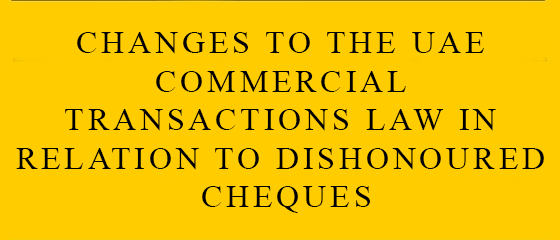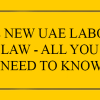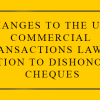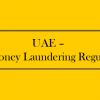The UAE Cabinet on 26th October 2020 approved the Federal Decree-Law No. 14 of 2020 (hereinafter referred to as the “Decree”) which effectively seeks to amend the Articles of the UAE Penal Code and also the Commercial Transaction Law which relates to punitive provisions for offences involving cheques. This amendment is set to be effective from 2nd January, 2022. The said Decree effectively decriminalises the act of issuing cheques that bounce due to insufficient funds.
Before dwelling into what is the effect of the new amendment it is pertinent to look into what is the status quo regarding the offence of cheque bounce. It is a known fact that cheques are one of the most common modes of payment settlement used, especially by businesses. Article 483 of the UAE Federal Law No. (18) of 1993 Commercial Transactions Law defines a cheque as
A cheque is said to be bounced when the same is returned or is dishonored by the bank where the said cheque is presented for encashment.
There are several reasons why a cheque could be bounced for instance-
- When there are insufficient funds available in the account on which the cheque is drawn. In other words, the amount mentioned on the cheque which is presented in the bank for encashment is more than the actual amount that is available in the account on which the cheque is drawn.
- When the account on which the Cheque is drawn is closed even before the presentation of the cheque for encashment.
- There are instances where the account holder themself instructs the bank against the encashing of the cheque against his/her bank account thereby withholding the payment.
- A cheque is deliberately issued in such a manner that it will be rejected on technical grounds when essential details like the signature are deliberately mismatched, invalid overwriting of amount, the handwriting is illegible etc., and the same are not rectified upon notification of the same.
In UAE if a cheque so issued by an issuer is dishonored it could entail both a criminal as well as a civil liability on the issuer. The aggrieved can realize the defaulted amount from the issuer in accordance with Article 632 of the Federal Law No 18 of 1993- The Commercial Transactions Law. Article 632 states that the presenter of the cheque has the right to take recourse if the cheque so presented is unpaid given that the same is presented with the prescribed time limit and even after his efforts the issuer has not paid the presenter, whether by cheque or otherwise. Article 632 further states that bank statements can be used as evidence of non-payment even after all efforts made by the presenter. Further, Article 617 of the Commercial Transactions Law states that the due date for the cheque is the date mentioned on the cheque which is the date of issue and the cheque should not be presented for encashment before the date so mentioned. Article 618 provides for the limit within which the cheque has to be presented from the date of issue to be 6 months.
The criminal liability aspect of a dishonored cheque is provided for in Article 401 which comes under Chapter II dealing with Trickery (Cheating) of the UAE Federal Law No. (3) of 1987 – the Law Promulgating the Penal Code. Article 401 specifically states that one could ensue detention or a fine if one in bad faith issues a cheque-
- without sufficient balance; OR
- then goes on to withdraw the balance required for encashing the cheque, not for purposes of paying the aggrieved and thereby leading to insufficient balance; OR
- further has instructed the drawee against encashing the cheque; OR
- in a manner that the cheque cannot be encashed due to technical error.
The Article also ensues the same penalty on the one who endorses a cheque knowing that there is no sufficient balance to honor the same.
Pursuant to Decision No. 88 of 2017, issued by the Dubai Attorney General Essam Al Humaidan, the penalty for a dishonored cheque could be different for the specific amount of cheque so dishonored in Dubai as follows –
- For Cheque amount up less than 50,000—Fine AED 2,000
- For cheque amount from AED 50,000 to AED 100,000 —Fine AED 5,000
- For cheque amount from AED 100,000 to AED 200,000 —Fine AED 10,000
Therefore in instances whereby the cheque amount that has been dishonored in Dubai is below AED 200,000, only a fine is imposed.
Similarly, Decision No. 14 of 2020 was issued by the Attorney General Office in Abu Dhabi which provided the limits for penalties in the case of a bounced or dishonours cheque in Abu Dhabi, as follows –
- For Cheque amount up to 50,000—Fine AED 1,000
- For cheque amount from AED 50,001 to AED 100,000 —Fine AED 3,000
- For cheque amount from AED 100,001 to AED 200,000 —Fine AED 5,000
- For cheque amount from AED 200,001 to AED 300,000 —Fine AED 10,000
- For cheque amount from AED 300,001 to AED 500,000 —Fine AED 20,000
Therefore in instances whereby the cheque amount that has been dishonored in Abu Dhabi is below AED 500,000, only a fine is imposed.
Having discussed the present regulatory regime regarding dishonored cheques it becomes important to discuss the implications of the new Decree once it comes to force. It has to be noted that only cheques dishonored due to insufficient funds and not bounced cheques for any other reason are being decriminalised. Therefore when the amendment comes into force, only the following would entail criminal liability –
- Where the drawer of the cheque has instructed his bank against encashing the cheque so issued
- Where the drawer has deliberately made the cheque in a way that it would be rejected on the ground of technical error; for instance putting the wrong signature.
- Where the drawer closes his bank account on which the cheque is drawn before the cheque so issued could be encashed, causing the cheque to bounce.
This effectively means that instances, where cheques are dishonored because of insufficient balance in the account of the drawer, are no more a criminal offence. But this also doesn’t mean there is no recourse in the event if the cheque is dishonored because of insufficient balance as the new Decree envisages an alternative route for the recourse. Now, under the amended Article 617 of the Commercial Transactions Law, the aggrieved can request the bank to make the partial payment from the drawer’s account subject to the available balance in the drawer’s account. Here it has to be noted that the banks don’t have autonomy over whether to process the partial payment request of the aggrieved as it is a matter of right of the aggrieved. Upon issuance of the payment, the Bank is then obligated to create a certificate for partial payment to be issued to the bearer of the cheque. Further, the Bank is obligated to report to the Central Bank of the United Arab Emirates with detail of the account holder in any of the following scenarios:
a) Where no sufficient, existing and usable fund for the payment of the value of the cheque is available at the date of its maturity,
b) Where the drawer, after issuing the cheque, withdraw all the fund for payment so it is not possible to pay its value, or
c) Where the drawee partially pay (sic) the value of the cheque in accordance with Clause (2) of this Article”
We can note here that the Decree further aims to enable the cheque so bounced or dishonored to become an executive instrument that could be executed under the UAE Civil Procedures Law. Therefore, as a result, of the same, the drawer can be made to pay the amount due to the aggrieved. If the drawer of the cheque fails, then under the amended Article 641, the drawer will be obligated to additionally pay a fine being not less than 10% of the cheque value. The Decree also envisages that in case a person is convicted for failing to adhere to the court orders, it could significantly affect the ability of such persons to enter into any further commercial transactions by virtue of publications and seizure of accounts. As such, the amended Article 643 envisages that for a person convicted under the amended Article 641 their checkbooks would be confiscated and he/she would be barred from being issued new checkbooks for a maximum period of 5 years and any bank providing such checkbooks will also be penalized
Accordingly, it could be said that the said Decree regarding dishonored cheques could be seen as a step towards promoting the commercial sector transactions as well as maintaining the people’s trust in cheques as the mode of payment settlement.
Legal advice from the lawyer or the law firm in the UAE should be obtained on any specific matter.






